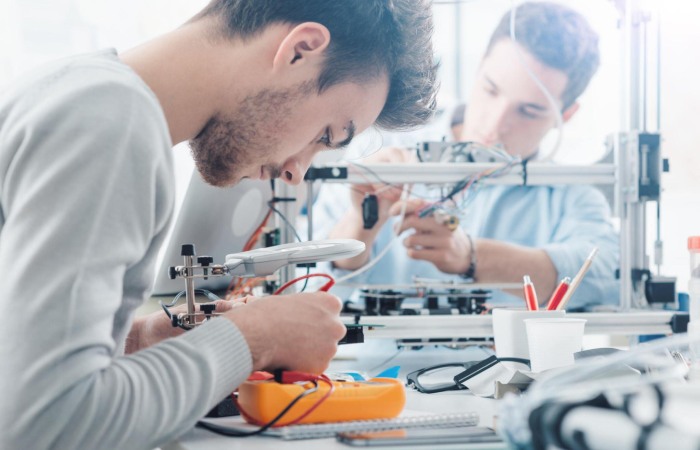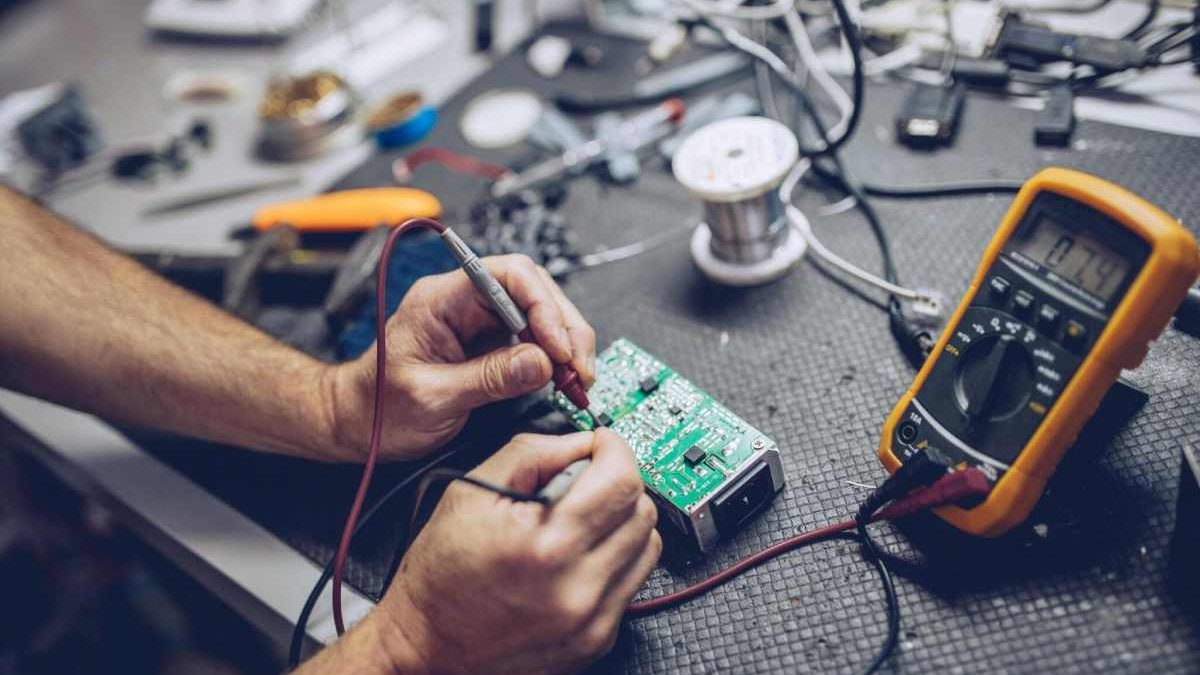Table of Contents
What is Electronics?
Electronics is a technical and scientific discipline, considered a branch of physics and a specialization of engineering, which is dedicated to studying and producing physical systems based on the conduction and control of a flow of electrons or electrically charged particles.
To do this, electronics use certain basic theoretical principles such as electromagnetism, materials science, and other forms of the practical application of scientific knowledge. Its results are fascinating to different fields of specialized knowledge, such as computer science or systems engineering.

Contemporary Applications of Electronics Include:
Control Systems
They allow processes to be started or stopped, such as the light circuits in our homes, and they can even acquire a certain degree of automation.
Power Electronics
It is based on using electronic devices to regulate electrical power and voltage, especially at significant levels, which is critical in energy distribution and other contemporary industrial processes.
Telecommunications
One of the broadest areas of technological development in electronics is databases and digital information systems, such as the Internet. As well as with the universe of gadgets or electronic devices available for the so-called culture 2.0.
History of electronics
Thomas Alva Edison, in 1883, first noticed thermionic emission.
Electronics had its beginning with the so-called “Edison effect.” Thomas Alva Edison 1883 first noticed thermionic emission, that is, the possibility of releasing electrons from an element by incorporating heat energy into it. This was key to the invention of the diode by Sir John Ambrose Fleming and then the triode in 1906 by Lee De Forest.
The latter is considered the father of electronics since, thanks to his contributions, it was possible to overcome the stage in which only power supplies were built and begin to amplify signals of all kinds, allowing the first steps towards the invention of the radio, television, and other modern devices.
Over time, miniaturization and, therefore, the construction of more practical devices was achieved with the invention of transistors in the mid-20th century, with vacuum tubes replaced, saving energy and money.
In 1958, the first integrated circuit was developed on silicon sheets, housing six transistors on the same chip. There was a direct path from there to the creation of the first microprocessor in 1970. Thanks to electronics, the field of industry and human life at all levels was revolutionized: cell phones, remote controls, autonomous circuits, etc.
What are Electronics For?
Thanks to electronics, we are revolutionizing our technological capacity.
Electronics serve endless applications in the contemporary world. Virtually all the implements we use daily (computers, calculators, cell phones, digital watches, electrical circuits, remote controls, televisions, radios) originate in the development of electronics, in the improvement in their driving mechanisms and materials. Thanks to electronics, we have revolutionized our technological capacity.
Importance of Electronics
Electronics make it possible to build complex implements and autonomous tools.
Electronics are fundamental to humans’ ability to build complex implements and autonomous tools that allow them to communicate over enormous distances, automate various daily tasks, or make them more accessible.
The ability to build logical mechanisms that work from closed circuits of electricity has been fundamental to generating a new generation of more powerful and intelligent devices and, without a doubt, will offer tremendous advantages in the future in robotics and automation.
Related posts
Featured Posts
What is Word (Que es Word) – Brief Explanation
Introduction MS Word is used to prepare a digital document on the computer, which is one of the world’s most…
Top 10 Cricket Coaching Classes in Surat – Cricket Academies
What is Cricket? Cricket is a game that most Indians love. One can see the craze behind cricket during the…



